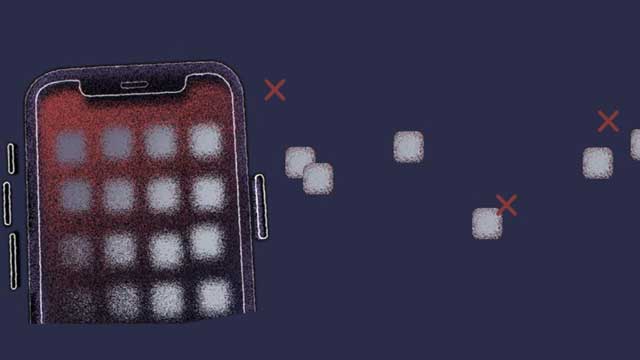The Criminal Investigation Department of Bangladesh Police is using a high-tech device procured from an Israeli digital intelligence firm to prosecute people by extracting data from their electronic devices in post-incident investigations.
New Age examined the forensic reports submitted in eight cases filed between 2019 and 2020 and found that the flagship product of Israeli firm Cellebrite called the Universal Forensic Extraction Device was used in the investigations of the cases.
Cellebrite offers what it terms ‘digital forensic’ solutions to law enforcement agencies around the world, saying that the UFED technology enables the extraction of data from locked mobile phones and identify their physical location without the owner’s consent.
In Munshiganj, Rapid Action Battalion inspector Mustafizur Rahman filed a case with the Srinagar police station in April 2020 under the Digital Security Act against Srinagar College Chhatra Dal unit’s former organising secretary Ashraful Islam Shuvo, 25, on charge of tarnishing the image of prime minister Sheikh Hasina and her cabinet members.
Ashraful criticised the PM for not meeting the basic needs of people.
The CID forensic laboratory used the Cellebrite device to extract data from Ashraful’s mobile phone.
The Detective Branch of the Khulna Metropolitan Police remanded Sramik-Khrishak-Chhatra-Janata Oikya Parishad coordinator Ruhul Amin, 35, in custody in a case filed under the DSA for criticising the government following the death of writer Mushtaq Ahmed in prison custody on February 25, 2020.
The CID forensic lab extracted data and examined the information using the UFED technology.
The RAB-6 filed a case against Md Nuruzzaman, 35, on May 1, 2020 under the same act with the Bagharpara police station.
In separate Facebook posts, Nuruzzaman questioned the image of the Bangladesh Army and criticised ministers for not maintaining Covid-time social distancing.
A 15-year-old boy, Md Emon, was arrested after a case was filed under the DSA with the Bhaluka model police station in Mymensingh by the Habirbari Awami Juba League unit secretary Hanif Mohammad Nipun on June 20, 2020 on charge of maligning the prime minister.
The documents obtained from the CID lab showed that its IT forensic section used UFED in the investigation.
New Age spoke with 11 officials of different positions at various units of the Bangladesh Police of whom four confirmed the use of the Cellebrite product for ‘post-incident investigation purposes’.
Two of the officials on Monday said that the Cellebrite device was procured under a project titled ‘Enhancing the Cyber Crime Investigation Capability of Bangladesh Police’ financed by the Korea International Cooperation Agency and designed by Korean cyber experts.
The project was inaugurated by prime minister Sheikh Hasina on January 23, 2017, according to the CID website.
Bangladesh procured the technology produced by the Israeli company though the two nations do not have diplomatic ties.
The then CID chief, Mokhlesur Rahman, who later retired as an additional inspector general of police, confirmed that the technology was procured by the KOICA under a modernisation project of the investigation agency.
‘We are using it [UFED] as there is no restriction on its use from the government,’ Rumana Akhter, special superintendent of police in charge of the CID forensic laboratory, told New Age.
Another official who worked in Dhaka for cyber security confirmed that in the initial stage their officials did not have enough knowledge of the IT forensic technology and software when the Israeli device was obtained and it was not replaced as, by the time the DSA was enacted, forensic investigators became adept at its use.
‘The device was procured five to six years ago. Our investigators were imparted training in its use then and it has been in use since 2017. The courts, too, accept the reports from the CID’s forensic laboratory for prosecution,’ the official added.
The police headquarters did not respond to New Age’s query as to whether other police units were using the Israeli device while chief deputy inspector general Banaj Kumar Majumder of the Police Bureau of Investigation said that they did not use any device or software procured from or originating in Israel in their forensic lab.
In a report published in August 2020, Israeli newspaper Haaretz said that Israeli digital intelligence firm Cellebrite had decided to stop selling its technology to Bangladesh, where its hardware was reportedly used by a paramilitary unit accused of extrajudicial killings, torture, and disappearances of civilians and journalists.
The Cellebrite decision was likely influenced by the company’s plan to go public in 2020, the report added.
According to documents filed with the US Securities and Exchange Commission in August, Cellebrite’s board has authorised the formation of a special advisory committee to make sure that ethical considerations are also taken into account in future sales.
‘Cellebrite’s main clients are Western police forces, but it also sells its products elsewhere including, at least until now, Bangladesh,’ it reported.
CID officials said that their forensic lab provides support to investigating agencies in matters of cybercrime and digital evidence and gives expert forensic opinion which is presented to courts as judicial evidence.
In 2018, the lab provided expert opinions in about 1,000 cases involving more than 4,000 pieces of digital evidence.
All sorts of digital devices seized during the investigation of a case are examined by certified IT forensic personnel in the lab.
The devices include computers, laptops, mobile phones, tabs, hard disks, pen drives, CDs, DVDs, recording devices, digital cameras, VoIP equipment, drones, SIM cards, memory sticks, network devices and CCTV, among others.
In March 2020, documents filed by Israeli human rights lawyer Eitay Mack to Israel’s Supreme Court revealed that Cellebrite used a company based in Singapore as its proxy for its dealings with Bangladesh, which has no diplomatic ties with Israel and cannot do business directly with Israeli firms.-New Age





